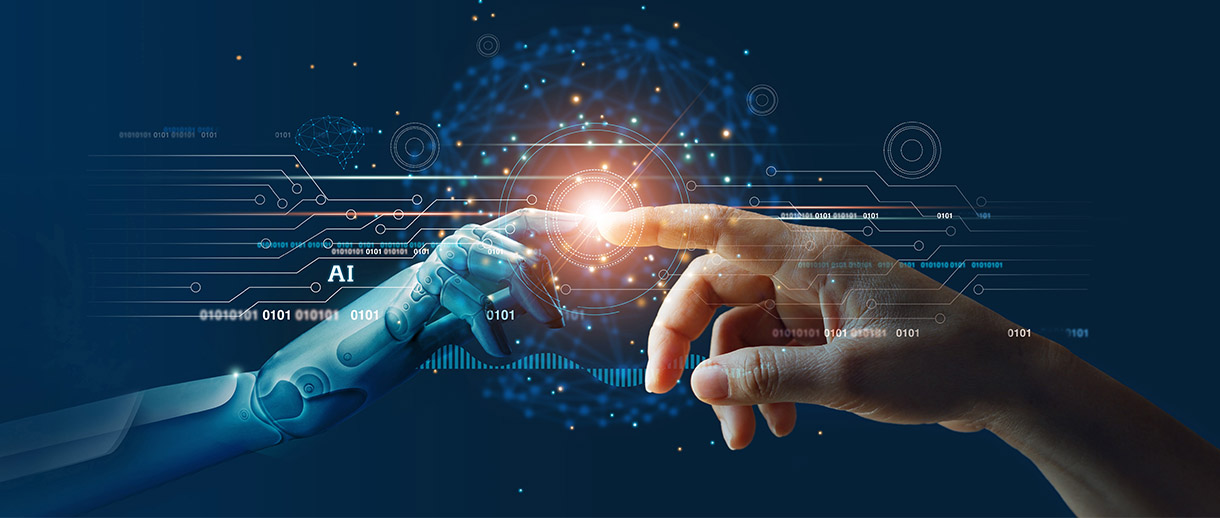
In today’s news cycle, the interplay of AI, media, and privacy regulations are omnipresent and inescapable hot-button issues. However revolutionary as this advancement in technology may be, such fast-paced growth may have several repercussions on our everyday lives. We are moving towards a world where we co-opt and coexist with AI, becoming increasingly more intertwined with our everyday lives. Chatbots like ChatGPT and Bing have been revolutionary in research and writing assistance, with Justice Anoop Chitkara of the Punjab and Haryana High Court recently penning a bail order using ChatGPT. On the other hand, improved deepfake technology and text to image software have ushered us safely into the post truth era, a recent example being a picture of Pope Francis that was, at first glance, indistinguishable from reality.1 We have, in a previous article, outlined certain legal issues related to personality rights that may arise from generative AI.
The Future of Life Institute, a non-profit organisation, recently released an open letter calling for a pause on the training of all AI systems that are more powerful than GPT 4 (the fourth language model created by OpenAI) for at least 6 months. The now-viral letter has been signed by tech giants including Elon Musk, CEO of SpaceX, Tesla and Twitter, Steve Wozniak, the co-founder of Apple Inc., Yuval Noah Harari, the author of Homo Deus and Sapiens, and Emad Mostaque, the CEO of Stability AI. The letter further set out a call to action for AI developers to work with policymakers in order to:
“Dramatically accelerate development of robust AI governance systems. These should at a minimum include: new and capable regulatory authorities dedicated to AI; oversight and tracking of highly capable AI systems and large pools of computational capability; provenance and watermarking systems to help distinguish real from synthetic and to track model leaks; a robust auditing and certification ecosystem; liability for AI-caused harm; robust public funding for technical AI safety research; and well-resourced institutions for coping with the dramatic economic and political disruptions (especially to democracy) that AI will cause.”2
While India does not have a formal data privacy legislation yet, the fundamental Right to Privacy has guaranteed under the Constitution of India. As the Supreme Court of India found in the landmark judgement in Justice K. S. Puttaswamy (Retd.) and Anr. vs Union of India and Ors. (W.P. (C) No. 494/2012), “Privacy also connotes a right to be left alone. Privacy safeguards individual autonomy and recognises the ability of the individual to control vital aspects of his or her life. Personal choices governing a way of life are intrinsic to privacy.”
The Delhi High Court also noted, in Zulfiqar Ahman Khan vs. M/S Quintillion Business Media Private Limited and Ors. (CS (OS) 642/2018) that the Right to be Forgotten and the Right to be Left Alone are inherent aspects of the Right to Privacy, and directed the defendants to take down, during the pendency of the suit, materials that irreparably hampered the Plaintiff’s personal and professional life. The Court further noted that, “the Plaintiff, thus, has a right to ensure that the articles are not published on multiple electronic/digital platforms as that would create a permanent atmosphere of suspicion and animosity towards the Plaintiff and also severely prejudice his personal and professional life.”
In the matter of Jorawer Singh Mundy vs. Union of India (W.P.(C) 3918/2021), the Petitioner had been acquitted of all charges in a matter registered against him under the Narcotics Drugs and Psychotropic Substances Act, 1985. However, he continually faced discrimination owing to freely available copies of the judgement in the matter. Aggrieved, the Petitioner filed a writ petition before the Delhi High Court to direct the removal of the judgment from all the Respondents’ platforms, in an exercise of his fundamental rights. In the order granting interim relief to the Petitioner, the Court noted that the issue required examination and balancing concerns arising out of the Right to Privacy on one hand, and the Right to Information on the other. While granting the Petitioner interim relief, the Court found that the Petitioner had been subject to irreparable prejudice despite his acquittal and directed the respondents to remove the judgements until the matter had been adjudicated on.
As the Honourable Supreme Court has found, “technology results almost in a sort of a permanent storage in some way or the other making it difficult to begin life again giving up past mistakes. People are not static, they change and grow through their lives… it is privacy which nurtures this ability and removes the shackles of unadvisable things which may have been done in the past … the right of an individual to exercise control over his personal data and to be able to control his/her own life would also encompass his right to control his existence on the internet.”3
Privacy and data protection are often key issues that arise when discussing regulating the tech and media space. However, an important dimension which needs more attention are the algorithms that decide, define, and drive online user behaviour. Given that data is fundamental to the functioning of AI, the utilisation and generation of this user data may also become a key policy question in the future. In recent news, TikTok, the video sharing social media platform, was called before a US congressional committee for a hearing entitled, “TikTok: How Congress Can Safeguard American Data Privacy and Protect Children from Online Harms.”4 The hearing was convened, inter alia, to address concerns relating to consumer privacy, data security, and algorithmic manipulation with respect to the social media site. Notably, during the course of the hearings, Representative Jay Obernolte commented that algorithms, “gather user data then use powerful A.I. tools to make eerily accurate predictions of human behaviour, then manipulate that behaviour.”5 While the collection of data in this manner, in order to impact user behaviour, is common practice in the industry, the lack of appropriate and effective governmental oversight and regulation in this field is certainly cause for concern. Data protection, the Right to be Forgotten, and the Right to be Left Alone, in this instance, may prove to be more difficult to claim and enforce.
Therefore, in the context of AI-based technology, enforcing the Right to be Forgotten may be more complicated. At the outset, it is important to note that AI and related technologies do not ‘forget’ the way humans do, and the deletion of data in an AI environment is far more complex that a mere erasure of specified information. Enacting legislations on the Right to be Left Alone by using human memory as the base of formal understanding on the subject, as most legislations have been enacted, may not be an effective way to implement and enforce tech laws in the post-AI age, and shows a clear disconnect between law and technical reality.6 To address this issue, it is key that increased consultations and collaborations be encouraged between our lawmakers and subject matter experts, to address the technical consequences of inadequate privacy and data protection regulations and determine the best legal and regulatory policies in this regard.
1 Wong, Ashley. “Paparazzi Photos Were the Scourge of Celebrities. Now, It’s AI.” The Wall Street Journal. April 3, 2023. Available at: https://www.wsj.com/articles/ai-photos-pope-francis-celebrities-dfb61f1d.
2 Future of Life Institute. “Pause Giant AI Experiments: An Open Letter.” Available at: https://futureoflife.org/open-letter/pause-giant-ai-experiments/.
3 Puttaswamy (Supra)
4 The Committee on Energy and Commerce. Memorandum: Hearing Entitled “TikTok: How Congress Can Safeguard American Data Privacy and Protect Children from Online Harms.” March 20, 2023. Available at: https://d1dth6e84htgma.cloudfront.net/Memo_03_23_2023_Full_Committee_Tik_Tok_Hearing_55e129f043.pdf?updated_at=2023-03-20T21:12:05.159Z.
5 Chayka, Kyle. “The TikTok Hearings Inspired Little Faith in Social Media or in Congress.” The New Yorker. March 24, 2023. Available at: https://www.newyorker.com/culture/infinite-scroll/the-tiktok-hearings-inspired-little-faith-in-social-media-or-in-congress.
6 Li, Tiffany et al. “Humans Forget, Machines Remember: Artificial Intelligence and the Right to Be Forgotten.” Boston University School of Law Scholarly Commons, Boston University School of Law. April 2018. Available at: https://scholarship.law.bu.edu/cgi/viewcontent.cgi?article=1816&context=faculty_scholarship.
















